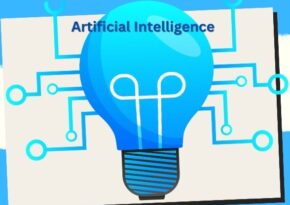
 Putting Users First: The Art of Crafting AI for Well-Being
Putting Users First: The Art of Crafting AI for Well-Being 

 Designing AI Systems for User Well-Being: A Journey Towards Ethical Innovation
Designing AI Systems for User Well-Being: A Journey Towards Ethical Innovation 
In an era where technology has woven itself into the fabric of our daily lives, the responsibility of designing AI systems that prioritize user well-being has never been more crucial. Artificial Intelligence (AI) can potentially enhance our lives in countless ways, but it also comes with ethical and moral considerations that must be addressed. This article delves into designing AI systems for user well-being, exploring the significance, principles, challenges, and potential solutions to create a harmonious fusion of technology and humanity.
Understanding AI Systems for User Well-Being

AI systems for user well-being are designed to enhance the quality of life, experiences, and outcomes for individuals. These systems prioritize the physical and mental health, safety, privacy, and overall satisfaction of users while minimizing harm, bias, and negative consequences.

The essence of designing AI systems for user well-being lies in several key principles:
- Ethical Values: AI systems should adhere to ethical values that prioritize human rights, fairness, and societal norms.
- Transparency: Transparency in AI design ensures that users understand how AI systems work, what data they use, and how decisions are made.
- Privacy: Safeguarding user privacy is paramount, with data collection, storage, and usage aligned with user consent and legal standards.
- User-Centricity: AI systems should be designed with a deep understanding of user needs, preferences, and limitations.
- Safety and Trust: Ensuring AI systems are safe, reliable, and trustworthy fosters user trust and confidence.
- Accountability: Clear lines of accountability should be established, ensuring responsible behavior when AI systems make decisions that affect individuals.
Applications of AI Systems for User Well-Being

AI systems for user well-being have diverse applications that span various industries, each aiming to improve user experiences and outcomes:
- Healthcare: AI-driven diagnostics, telemedicine, and personalized treatment plans enhance patient care and well-being.
- Mental Health: AI-powered mental health apps offer support, resources, and interventions to individuals facing mental health challenges.
- Education: Personalized learning platforms adapt to students’ needs, improving educational outcomes and engagement.
- Financial Services: AI-based financial advisors help users make informed financial decisions, aligning with their goals and risk tolerance.
- Automotive: In the automotive industry, AI contributes to safety, comfort, and user well-being through features like driver assistance and autonomous driving.
- Retail: Recommendation systems enhance the shopping experience, providing personalized product suggestions.
- Smart Homes: AI-driven home automation systems make life more convenient, energy-efficient, and secure while prioritizing user comfort and well-being.
Challenges in Designing AI Systems for User Well-Being

While designing AI systems for user well-being is a noble endeavor, it is not without its challenges:
- Ethical Dilemmas: Balancing the potential of AI for good with ethical considerations, such as privacy and bias, remains an ongoing challenge.
- Complex Algorithms: Designing algorithms that are transparent, interpretable, and aligned with human values can be complex.
- Data Privacy: Safeguarding user data while providing personalized experiences requires careful attention and adherence to data protection laws.
- Human-AI Collaboration: Determining the right level of interaction and collaboration between humans and AI systems is a nuanced challenge.
- User Education: Ensuring users understand AI capabilities, limitations, and implications is an ongoing educational challenge.
- Regulatory Frameworks: Developing regulatory frameworks that protect user interests without stifling AI innovation requires a delicate balance.
Ethical Considerations in Designing AI Systems for User Well-Being

Addressing ethical considerations is at the heart of designing AI systems for user well-being. Here are some key ethical considerations:
- Fairness: Ensuring AI systems do not discriminate against individuals based on race, gender, or age is a central ethical concern.
- Transparency: AI systems must be transparent, allowing users to understand the rationale behind their decisions.
- Privacy: Protecting user privacy is paramount. Data collection, storage, and usage should align with user consent and legal standards.
- Accountability: Establishing clear lines of accountability is essential. Who is responsible when AI systems make decisions that impact individuals?
- Bias Mitigation: Efforts should be made to mitigate bias in AI systems, ensuring they do not perpetuate or exacerbate societal biases.
- User Consent: Users should have agency and consent in interactions with AI systems, particularly in cases where sensitive information is involved.
- Beneficence: AI systems should maximize benefits and minimize harm to individuals and society.
- Human Autonomy: AI should enhance human autonomy and decision-making rather than diminishing it.
The Future of AI Systems for User Well-Being

The journey of designing AI systems for user well-being is ongoing, with several trends and developments shaping its future:
- Explainable AI: Advances in explainable AI will make AI systems more transparent and accountable.
- AI Regulation: Governments and international bodies will continue establishing regulations that balance innovation and ethical considerations.
- AI Education: Increased AI literacy among the public will foster a deeper understanding of AI’s capabilities and ethical implications.
- AI Ethics Committees: Organizations and industries will establish AI ethics committees to ensure adherence to ethical standards.
- Human-AI Collaboration: AI will increasingly complement human skills, making interactions more collaborative and productive.
Conclusion
Designing AI systems for user well-being represents a pivotal shift in approaching technology development and deployment. By placing human values, ethics, and well-being at the forefront, we can harness the incredible potential of AI while safeguarding individual rights and societal values. As we navigate the ever-evolving landscape of AI, the principles of designing AI systems for user well-being will serve as our guiding compass, ensuring that technology and humanity continue to coexist and thrive in harmony.
Related Queries










Save/Share this story with QR CODE
Disclaimer
This article is for informational purposes only and does not constitute endorsement of any specific technologies or methodologies and financial advice or endorsement of any specific products or services.
 Need to get in touch?
Need to get in touch?

We appreciate your reading. 
1.) 

Your DONATION will be used to fund and maintain NEXTGENDAY.com
Subscribers in the Philippines can make donations to mobile number 0917 906 3081, thru GCash.
3.) 
4.) 
AFFILIATE PARTNERS

World Class Nutritional Supplements - Buy Highest Quality Products, Purest Most Healthy Ingredients, Direct to your Door! Up to 90% OFF.
Join LiveGood Today - A company created to satisfy the world's most demanding leaders and entrepreneurs, with the best compensation plan today.



 Business Technology, Finance Technology & Information Technology
Business Technology, Finance Technology & Information Technology







 Tackling Algorithmic Bias in AI: Strategies for Fairer Technology!
Tackling Algorithmic Bias in AI: Strategies for Fairer Technology!

 Evaluating Fairness in AI: Bridging the Gap Across Demographic Groups
Evaluating Fairness in AI: Bridging the Gap Across Demographic Groups 

